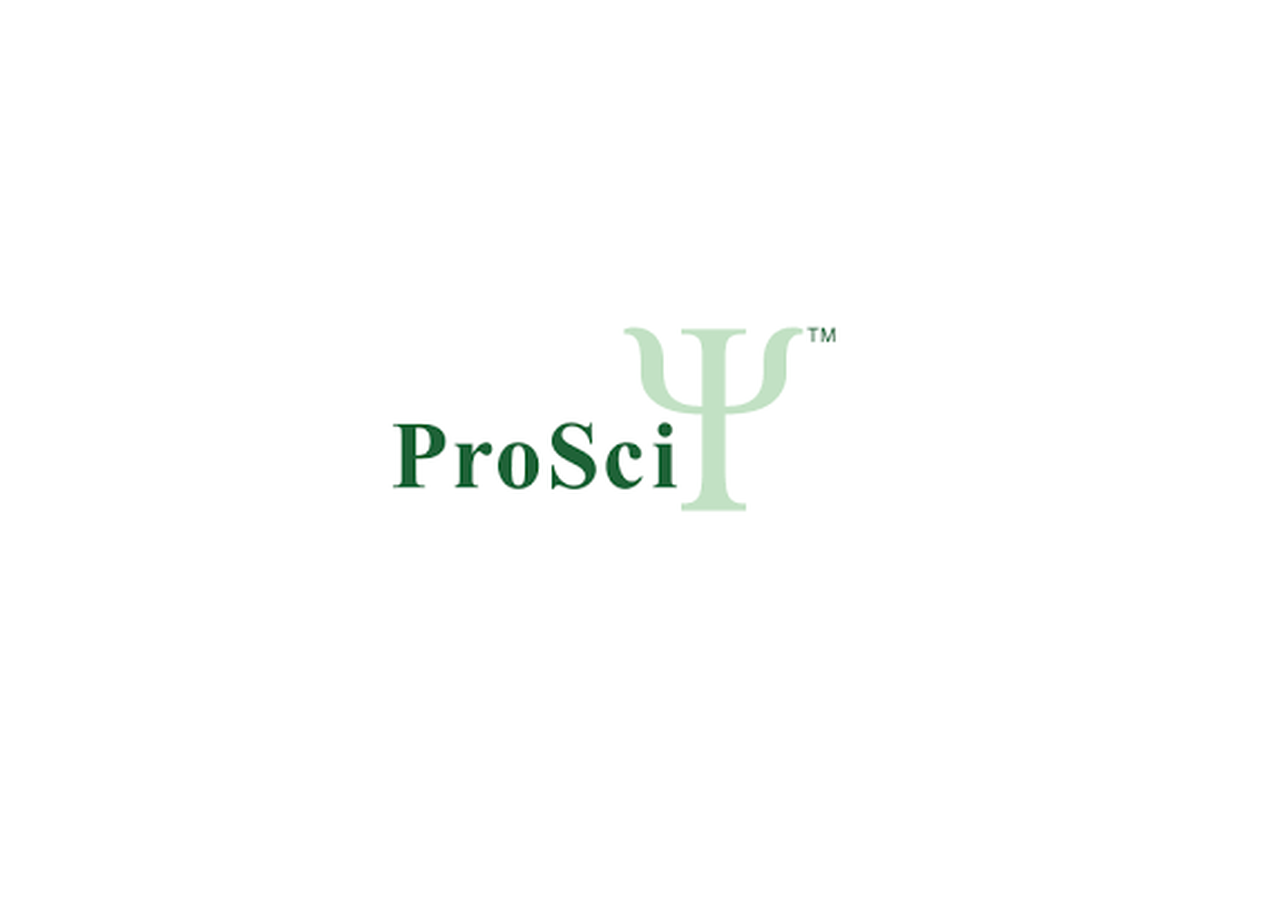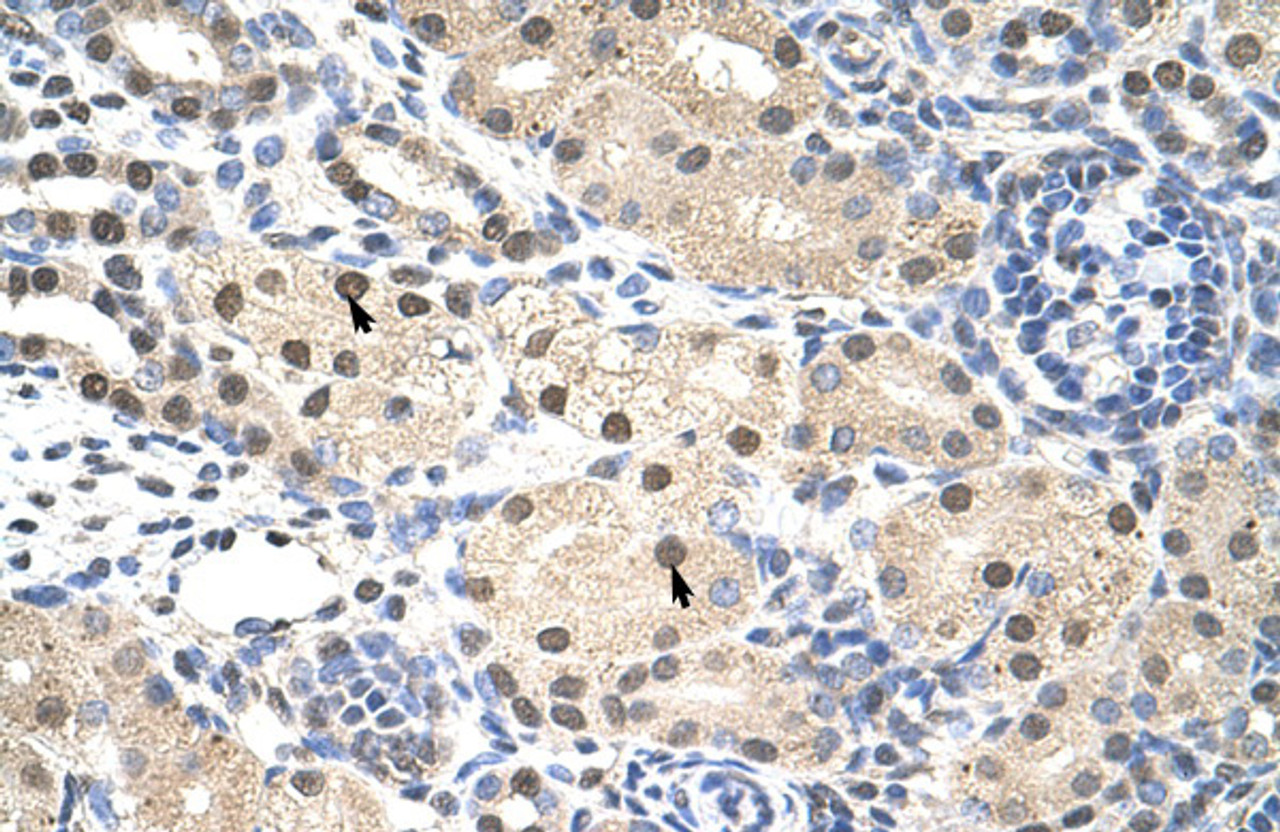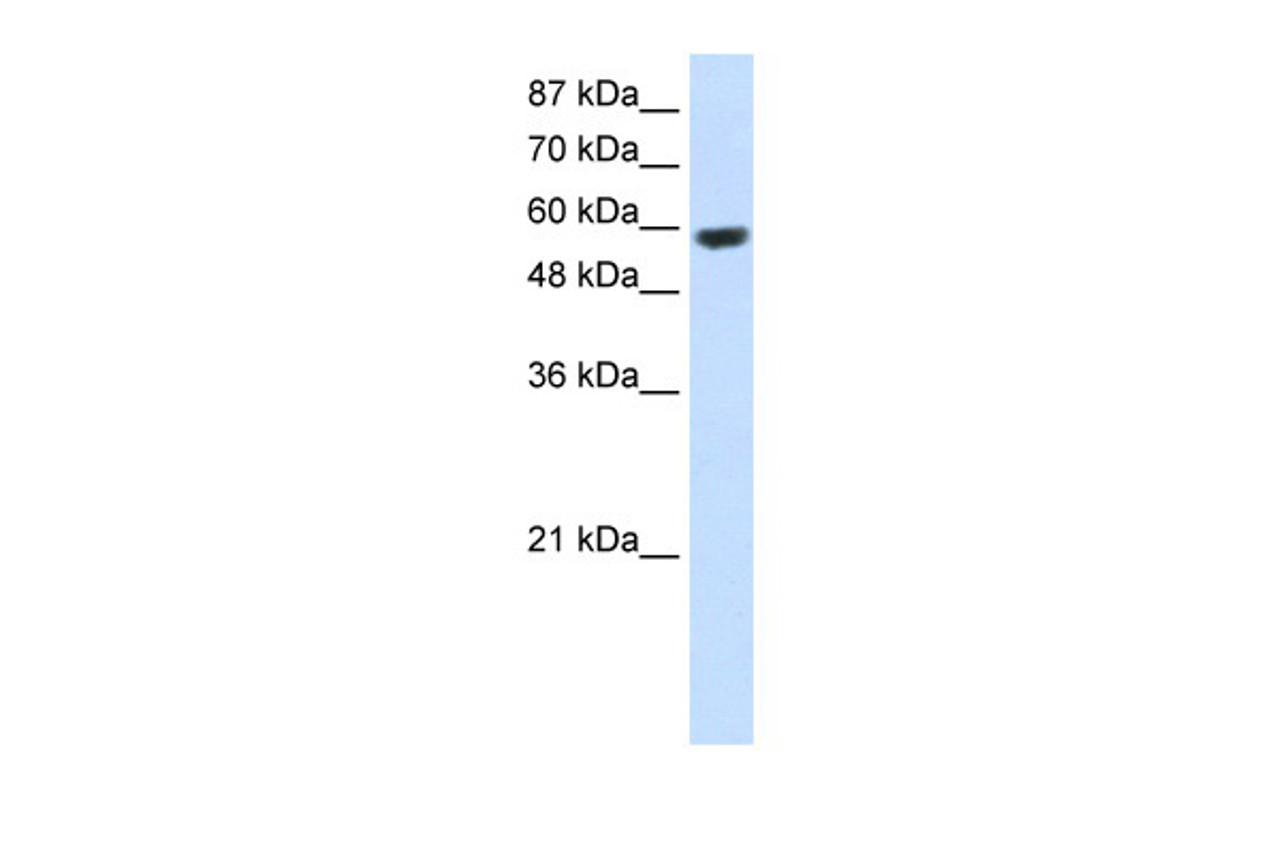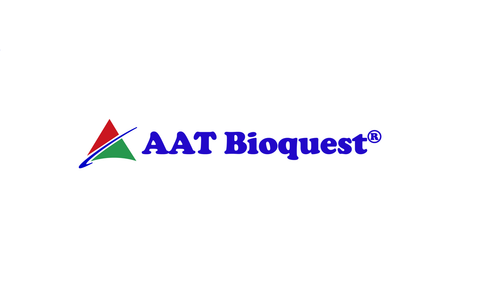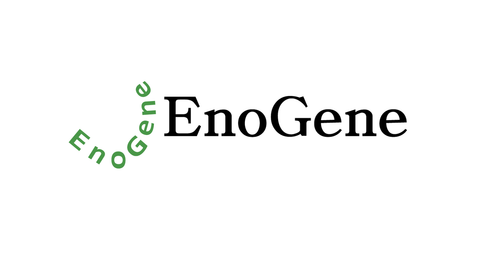Product Description
RNF14 Antibody | 28-872 | ProSci
Host: Rabbit
Reactivity: Human
Homology: N/A
Immunogen: Antibody produced in rabbits immunized with a synthetic peptide corresponding a region of human RNF14.
Research Area: Transcription, Cancer
Tested Application: E, WB, IHC
Application: RNF14 antibody can be used for detection of RNF14 by ELISA at 1:312500. RNF14 antibody can be used for detection of RNF14 by western blot at 2.5 μg/mL, and HRP conjugated secondary antibody should be diluted 1:50, 000 - 100, 000.
Specificiy: N/A
Positive Control 1: Cat. No. 1205 - Jurkat Cell Lysate
Positive Control 2: N/A
Positive Control 3: N/A
Positive Control 4: N/A
Positive Control 5: N/A
Positive Control 6: N/A
Molecular Weight: 52 kDa, 54 kDa, 40 kDa, 54 kDa, 54 kDa
Validation: N/A
Isoform: N/A
Purification: Antibody is purified by protein A chromatography method.
Clonality: Polyclonal
Clone: N/A
Isotype: N/A
Conjugate: Unconjugated
Physical State: Liquid
Buffer: Purified antibody supplied in 1x PBS buffer with 0.09% (w/v) sodium azide and 2% sucrose.
Concentration: batch dependent
Storage Condition: For short periods of storage (days) store at 4˚C. For longer periods of storage, store RNF14 antibody at -20˚C. As with any antibody avoid repeat freeze-thaw cycles.
Alternate Name: RNF14, ARA54, HFB30, TRIAD2, HRIHFB2038
User Note: Optimal dilutions for each application to be determined by the researcher.
BACKGROUND: RNF14 contains a RING zinc finger, a motif known to be involved in protein-protein interactions. This protein interacts with androgen receptor (AR) and may function as a coactivator that induces AR target gene expression in prostate. A dominant negative mutant of this gene has been demonstrated to inhibit the AR-mediated growth of prostate cancer. This protein also interacts with class III ubiquitin-conjugating enzymes (E2s) and may act as a ubiquitin-ligase (E3) in the ubiquitination of certain nuclear proteins.The protein encoded by this gene contains a RING zinc finger, a motif known to be involved in protein-protein interactions. This protein interacts with androgen receptor (AR) and may function as a coactivator that induces AR target gene expression in prostate. A dominant negative mutant of this gene has been demonstrated to inhibit the AR-mediated growth of prostate cancer. This protein also interacts with class III ubiquitin-conjugating enzymes (E2s) and may act as a ubiquitin-ligase (E3) in the ubiquitination of certain nuclear proteins. Five alternatively spliced transcript variants encoding two distinct isoforms have been reported.
 Euro
Euro
 USD
USD
 British Pound
British Pound
 NULL
NULL

